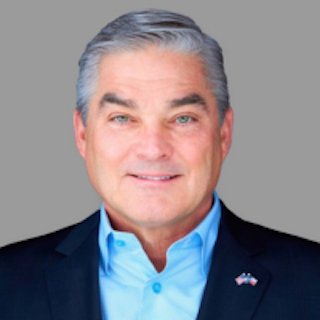Truth, trust, and the art of conversation
How one small town in Texas is helping people talk, and listen, to one another again.
 A portrait of Alexander Hamilton. (Courtesy of Wikicommons)
A portrait of Alexander Hamilton. (Courtesy of Wikicommons)
In his Second Letter from Phocion, published in 1784, Alexander Hamilton warned the “Considerate Citizens of New York” about what might happen if their public councils succumbed to “passions and prejudice.” Hamilton argued that rampant partisanship among elected officials would foster a “feeble, distracted, and arbitrary” spirit of government in which the “rights of the subject will be the sport of every party vicissitude” and policy would “fluctuate with the alternate prevalency of contending factions.”
Two hundred forty years later, Hamilton’s prediction has come true. Many of the country’s current political figures cling to their factions and ideologies with such blind allegiance that they refuse to work with the opposition, no matter how critical such cooperation might be. Congress spent much of 2023 deadlocked, while rank partisanship, hostile rhetoric, and superannuated politicians dominated our political discourse.
American citizens are rightfully frustrated with such dysfunction. But the beauty of the U.S. system is that we, the people, have the power to change these problems ourselves. Doing so, of course, would be no small undertaking. Part of the reason we haven’t is because many Americans, like our elected officials, have also succumbed to the partisan affliction, and that bitterness is constantly amplified by social media and disinformation. Another more concerning problem is that not enough Americans take their responsibilities as citizens seriously anymore. More specifically, too few exercise their civic duty to vote and thereby forego their opportunity to affect the composition of our government. While the turnout for national elections is woefully low, Americans’ indifference toward their role in politics is particularly visible at the local level. In Texas, for example, voter turnout for local elections now typically hovers around 10%-12%. According to the Texas Secretary of State, only 14.4% of registered voters voted in the November 2023 election, which approved 13 state constitutional amendments. Low voter turnout is not a problem unique to Texas. Yet too many Americans sit back and choose to do nothing about it. In standing idly by, these citizens are complicit in fostering the kind of politics they so despise.
To fix American politics, it is often said that we need to start with Washington, D.C. But that gets things backward; we must mend our own communities first. Policy debates begin at home, not at the national level, so that’s where the work must start. In particular, we must restore core values such as trust in and cooperation with our neighbors and even those whose perspectives may differ from ours in order to ensure that those values are reflected at the regional, state, and federal levels. If we as citizens want the United States to change for the better, the change must start with us.
Starting small
This challenge of starting with us weighed heavily on our minds in early 2021 as we sat in a small coffee shop in our adopted hometown of Prosper, Texas. One of us is a former Army strategist and the other is a former Air Force fighter pilot; we discussed how we could continue to serve our country now that we were out of the military. Part of the problem with current politics, we assessed, stemmed from a lack of public knowledge about some of the country’s most important issues. Too often, Americans are uninformed about and therefore uninspired by the candidates or topics they find on ballots, which is how we end up with such a small percentage of the electorate making many decisions for an entire municipality or state. We believed that if we could change that phenomenon in Prosper – if our community could somehow improve its collective understanding of today’s issues – then we would become better citizens and more effective participants in the governance of our republic.
It was this insight that led us to create the Prosper Exchange. The goal is to promote civic participation through honest dialogue and civil discourse across a range of challenging issues. Starting in mid-2022, in conjunction with the Prosper Economic Development Corporation, we gathered a diverse group of Prosper citizens to form a steering committee to help guide and manage our forum. Our committee determined that the Prosper Exchange should convene quarterly and topics would rotate among global, national, state, and local issues. Every three months, Prosper citizens meet in person for roughly 90 minutes. Each session reserves 15-20 minutes for an expert guest speaker, with the remaining time allocated for residents to engage in meaningful and considerate dialogue. Elected officials (except the mayor of Prosper, of course) are not given a platform to speak, though they certainly may attend the conversations. The Prosper Exchange, our committee determined, should be a forum for the people and should not get bogged down by electioneering and the sport of contemporary politics.
 Mayor David Bristol speaks at the Prosper Exchange on April 13, 2023.
Mayor David Bristol speaks at the Prosper Exchange on April 13, 2023.
We held the first Prosper Exchange on Jan. 12, 2023, when 40 residents gathered in the community room of our local police station. Our first topic was immigration, which was fitting, given how important the issue is and how thoroughly it has been politicized. That made it the perfect test to see if our community could amicably and productively discuss a hot-button issue. In order to cut through the noise, we brought in two experts to provide differing perspectives – an attorney with more than 30 years’ experience handling asylum cases and an economist who provided a balanced perspective on the need for immigrants to help grow the economy while ensuring adequate security. After the session, many attendees expressed that they had a better understanding and recognition of the complexities of immigration, particularly the criteria for claiming asylum. While measuring success of the Prosper Exchange is challenging (we won’t know if we increased civic participation until future election cycles), we did observe most participants conversing about what they learned as they departed the first Prosper Exchange.
Nearly twice as many participants joined our next session in April, when we discussed local taxation. The exchange was held in a large classroom at a local high school, and our experts were the local Collin County Tax Assessor-Collector and the Chief Financial Officer of the Prosper Independent School District (PISD). The tax assessor-collector, with over 40 years of experience in the role, described how his office collects taxes after receiving property appraisals from the county’s appraisal district. This discussion proved useful for residents, as they left the exchange with a better understanding of the division of labor among the local officials who value property and set tax rates, and those who actually collect taxes and distribute the tax revenue to the taxing units. The CFO shared how he and other school leaders carefully manage the funds the district receives from the county tax office. He described the different accounts from which the school district pays for operations, maintenance, salaries, and benefits. He also discussed how the bond process works when the district recommends the construction of new infrastructure. A key realization among the participants in this exchange was that the I&S (interest and sinking) portion of the PISD tax rate is capped at 50 cents by the state of Texas. Thus, selling new bonds would not increase property taxes. The exchange informed our citizens ahead of November, when PISD put forth four propositions to vote for new infrastructure in the district. In both of our first two exchanges, we ran out of time as residents eagerly carried the conversation with our guest experts through the discussion portion of the program.
DIY democracy
A primary objective of the exchange is to ensure that participants walk away with new perspectives on difficult subjects, regardless of whether they ultimately change their positions. The Prosper Exchange is not about convincing people which policies are better or worse. It is meant to offer an opportunity to engage with neighbors in a productive, friendly environment, thereby developing a facility for the honest dialogue and civil discourse that are so important for the health of U.S. democracy. The Prosper Exchange reminds us that we can still have face-to-face, respectful discussion on important issues, even if we disagree on the proper policy responses.
While the exchange is tailored for the Prosper community, the benefits of these discussions are meant to trickle up to the Texas state government and ultimately to Washington, D.C. In the long term, we want to help our citizens educate themselves to the point where they can hold elected officials more accountable. Perhaps then, instead of engaging in extreme and obstructive rhetoric to win elections, leaders will feel compelled to seriously address the challenges that most affect their communities. As we have learned, this is not something that politicians do by default. They require involved and informed constituencies to demand that they do so, instead of wasting their time on petty partisan politics. If we put in the effort to bridge the political divide at home and create more pluralistic communities, politicians who hope to hold office will be forced to subscribe to such values as well. In time, this ethos will make its way to Washington. Ensuring that it does is the responsibility of all of us. If we want to have better, more effective politicians, then we need to be better, more effective citizens – and that begins with establishing honest dialogue among our neighbors.
We encourage all communities to try out their own versions of the Prosper Exchange. The forums have not only brought our community closer together, but they have made us all better-informed citizens. Creating your own exchange only takes a few steps:
- Commit to doing your part to preserve the American experiment.
- Convene a small group of diverse residents as a steering committee.
- Determine a realistic frequency for meetings and a range of topics to consider.
- Identify possible guest speakers and confirm their willingness and availability.
- Choose a convenient date and location.
- Market the event as broadly and as early as possible.
- Handle invitations and registration via email and other appropriate means.
- Host the exchange and encourage dialogue.
- Conduct sufficient follow-up with participants to identify ways to improve future exchanges.
As veterans, we are often thanked for our service. But instead of thanking us and our comrades, do us one better: Commit yourselves to the betterment of the society and democracy that we fought to keep safe. The prosperity of the United States, after all, starts and ends with we, the people.
The Catalyst believes that ideas matter. We aim to stimulate debate on the most important issues of the day, featuring a range of arguments that are constructive, high-minded, and share our core values of freedom, opportunity, accountability, and compassion. To that end, we seek out ideas that may challenge us, and the authors’ views presented here are their own; The Catalyst does not endorse any particular policy, politician, or party.
The Catalyst believes that ideas matter. We aim to stimulate debate on the most important issues of the day, featuring a range of arguments that are constructive, high-minded, and share our core values of freedom, opportunity, accountability, and compassion. To that end, we seek out ideas that may challenge us, and the authors’ views presented here are their own; The Catalyst does not endorse any particular policy, politician, or party.


